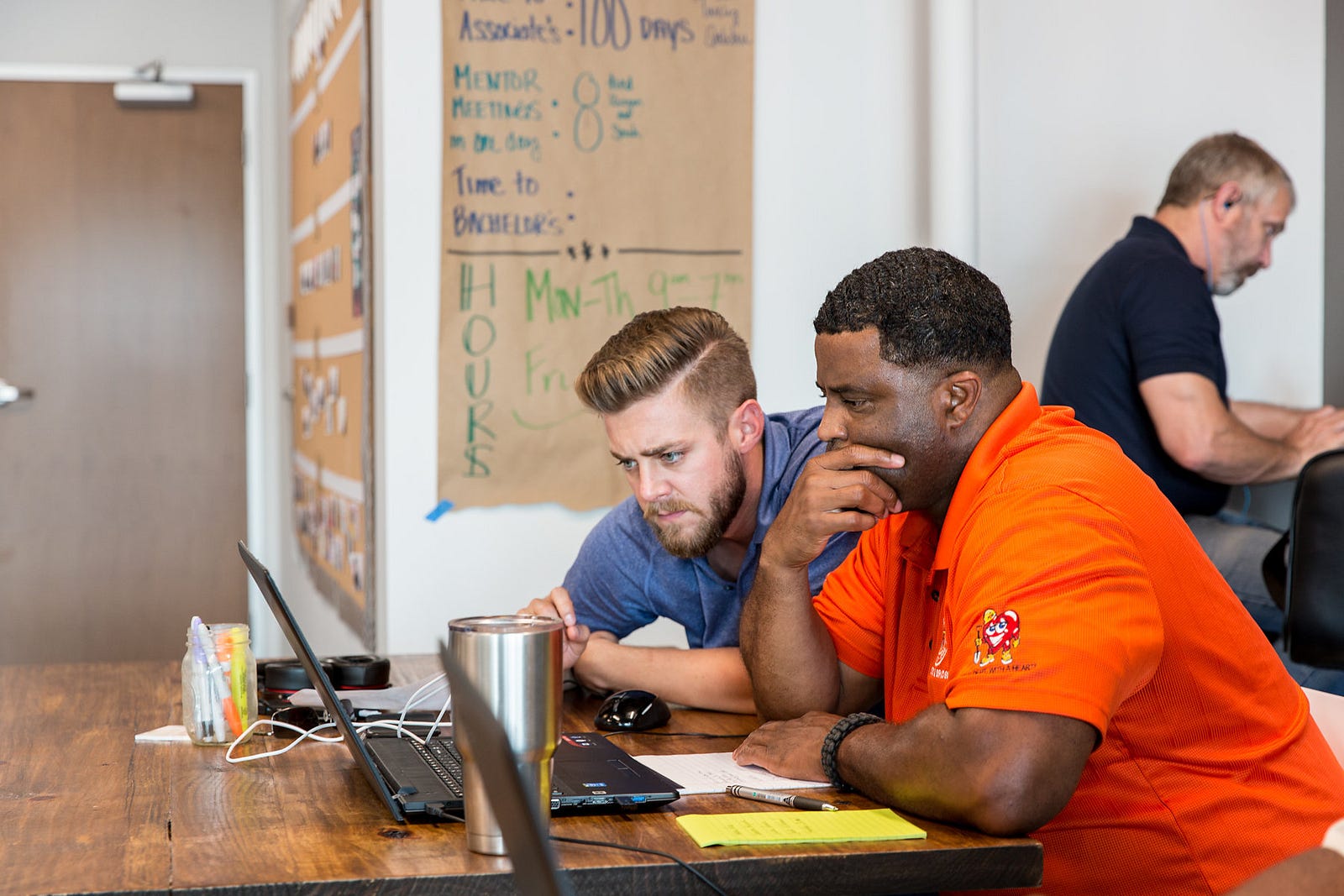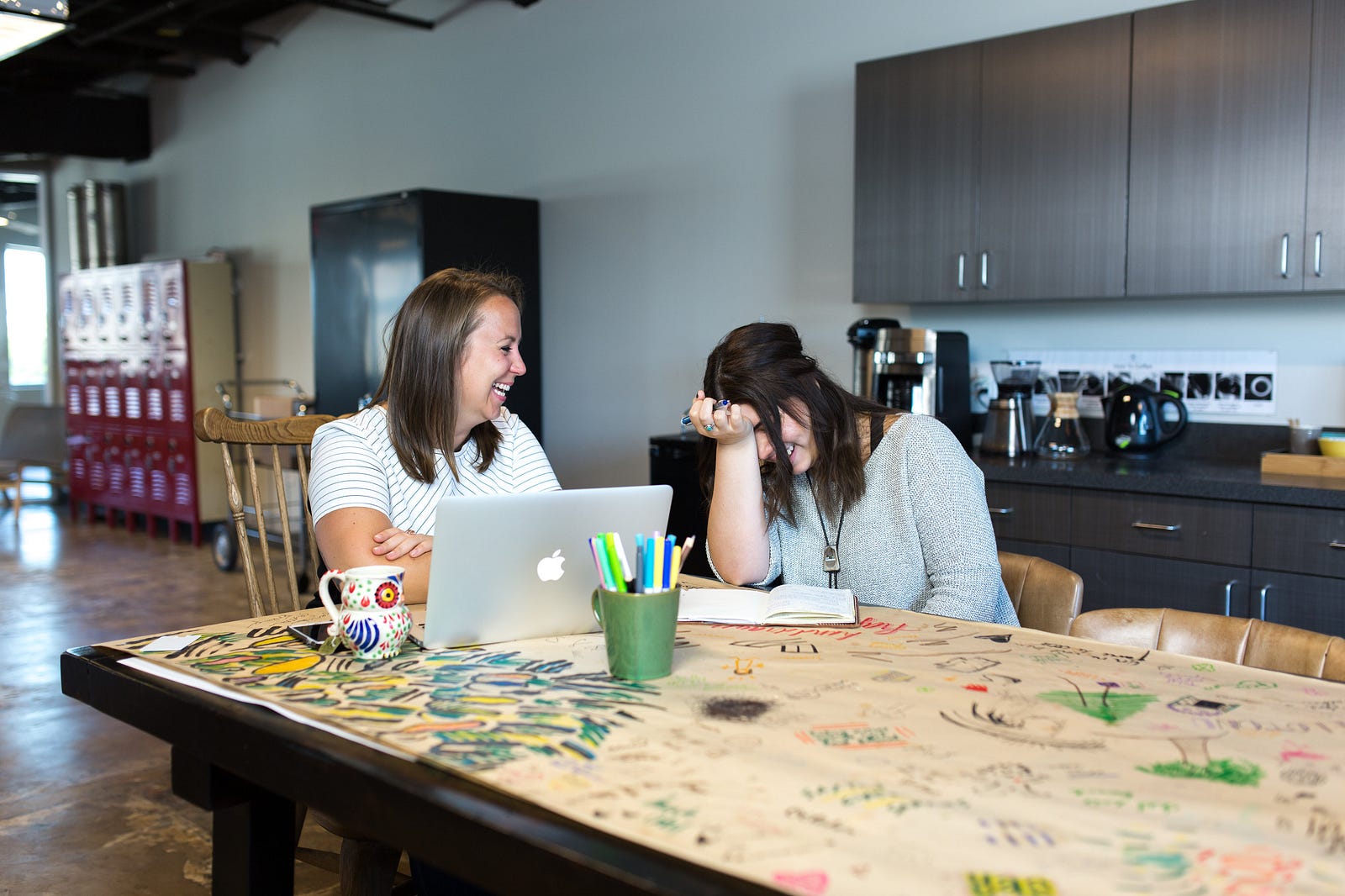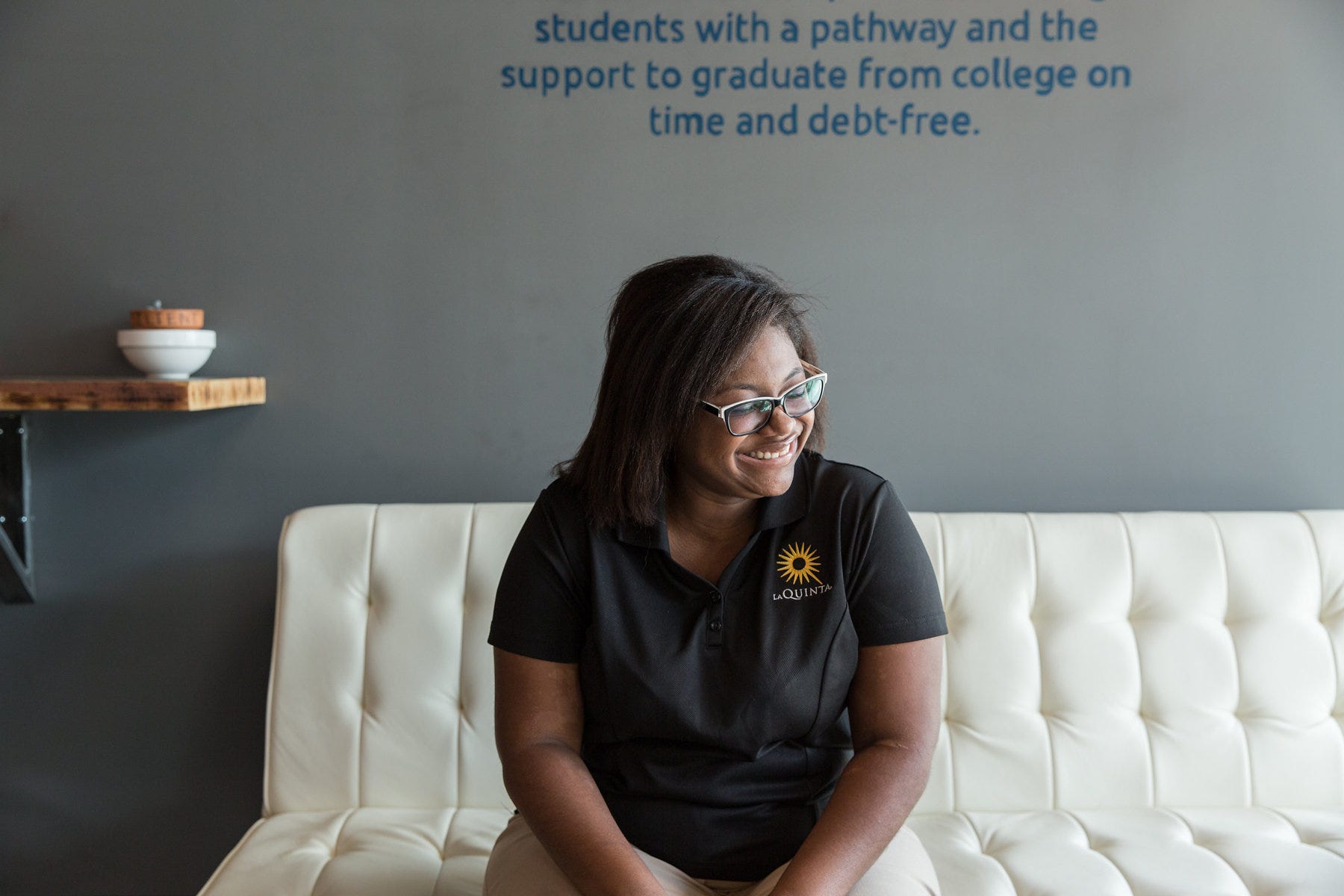We’re presenting our two year plan at Mission Capital on September 21st. You can find details and RSVP here. Here’s how we got here —
I was between jobs. My first Austin startup had flopped and I was looking for a another chance to build a company. Then, on April 11 2012 an email from Rex Gore, one of my mentors, showed up on my inbox.
It just said — Read Academically Adrift.
I bought the book on Amazon and began reading. Here’s what I first noticed:

The book nagged at me. College was supposed to be an economic equalizer, but what I read proved it too often becomes another place to sort people based on their network or resources. This was an equity issue.
I began to wonder, what if we could reinvent college for the folks who get stuck along the way?
Four years and forty-five students after that email, PelotonU is solving college completion for working adults. We do that by combining two proven tools.
Tool #1: Competency-Based Education (CBE)
The first tool is competency-based education. It’s a new pedagogy (think curriculum) that online universities built specifically for working adults. In lieu of a semester and scheduled tests, these programs ask students to take one course at a time and demonstrate content mastery when they are ready.
As a result, online CBE programs are affordable, aligned to workforce skills, and offer flexible scheduling for busy working adults.
Tool #2: In-Person Coaching
The second tool is in-person coaching. Students meet weekly with a coach who sets regular deadlines and anticipates obstacles. This all happens at a shared study space — like coworking for college.
Paired together, CBE and in-person coaching have consistently yielded an 85% persistence rate for students at PelotonU — five times better than the Austin average.

Venture Philanthropy
In March, we introduced a $2,500 annual student support fee for our coaching and study space to ensure our student support model would be paired with a sustainable business model. In most cases, our students recieve Pell Grants which covers the full cost of tuition and our support, ensuring students have no out-of-pocket expense and graduate debt-free.
In the few cases when students are not Pell eligible, they have been more than willing to pay the cost. With this approach, our revenue will cover our expenses in two years. That means this is the last time we’re raising major philanthropy from individual donors in Austin. Ever.
That’s where you come in. To get there, we need your help.
We want to approach philanthropy with a business mindset, raising the needed funds in one sprint like Austin’s tech entrepreneurs. Fundraising this way isn’t new — nonprofit startup Watsi pioneered the approach — and it allows us to build an expertise in operations instead of grant writing.
It will take two years and cost $300,000 to get to breakeven. This funding accomplishes two key goals. First, it frees our team to spend time on recruiting instead of fundraising. Second, it gives us the working capital to hire our next two college completion advisors.
Recruiting the Right Students
Our potential students don’t think college is for them. And they’re right. College wasn’t built for working adults (often called non-traditionalstudents). At PelotonU, 67% of our students have tried college before and found it didn’t fit their schedules.

To find the 235,000 working adults in Austin with some college and no degree (E3 Alliance), we need someone to tell them that (a) they’re ready for college, and (b) PelotonU can help. What’s proven effective, for both quantity and quality of enrollments, are referral partners, and our growth model is predicated on finding more.
Referral partners are folks like the City of Austin, St. David’s Hospital, or Breakthrough Austin — folks who have existing relationships and a vested interest in helping their folks earn a college degree. Almost sixty percent of our current applicants are from referral partners.
Raising a strategic round of contributions now will allow our team to reallocate the time we spend fundraising to developing more referral partnerships.
Working Capital
Our budget is hard to predict. 85% of the $175,000 we’ve raised so far in 2016 is from new donors, and 30% is one-year grants that aren’t certain to be renewed. That sort of unpredictability has required us to be conservative about spending — especially with fixed costs like salaries.
When a student pays with a Pell grant, we get those funds six months after they enroll. That means we’re supporting a student for six months of college and two more of academic onboarding before we see any revenue. That upfront cost is tough for us to cover, particularly as we grow. Fundraising ahead of time buys us the breathing room to hire two new college completion advisors.
Where We Go From Here
We want to build a new way to earn a degree. Our vision is to create a network of like-minded practitioners in other communities who work together to improve the model and increase the opportunities for working adults to graduate from college and get a job that makes a big difference for their family. In two years when we break even, we’ll have the scale, expertise, and margin to take our next step and grow beyond Austin.

This Fall we’re asking folks in the Austin community to make 12-month philanthropic pledges towards our $300,000 goal.
I’m presenting our plan for the next two years at Mission Capital on September 21st. You can find details and RSVP here.
Will you join us?